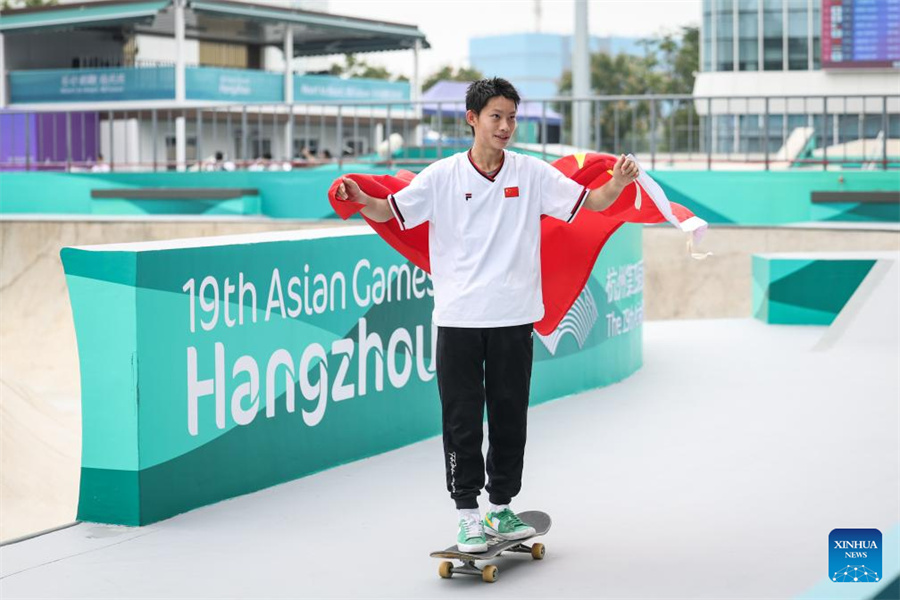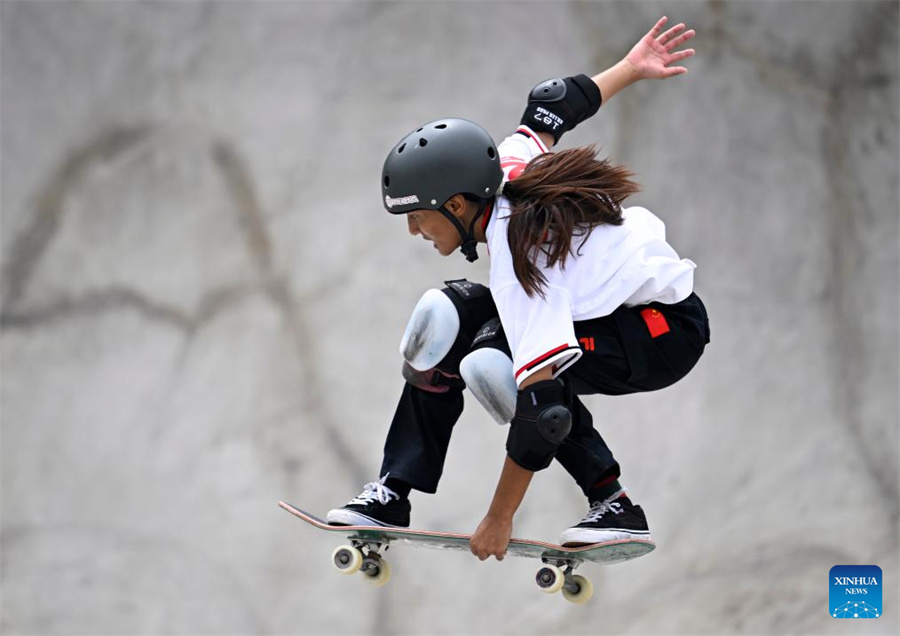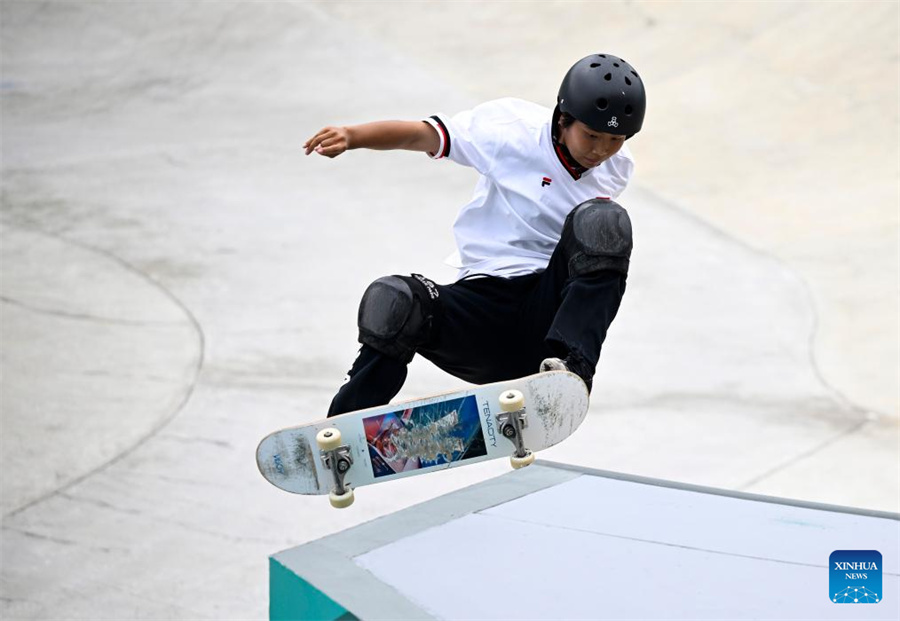Young Chinese skateboarders take center stage at Asian Games
Li Yujuan, born in 2003, won the silver medal and Mao Jiasi, five years younger, won bronze at the Women's Park Final of Skateboarding at the 19th Asian Games in Hangzhou, east China's Zhejiang Province on Sept. 25.
On the same day, 15-year-old Chen Ye upset two Japanese skateboarders to win the men's skateboarding park event.
The three Chinese athletes, all born in the 2000s, created the best record in the history of Chinese skateboarding in Olympic Games, Asian Games, and World Championships, marking a new chapter in Chinese skateboarding history.

Chen Ye of China celebrates after the Men's Park Final of Skateboarding at the 19th Asian Games in Hangzhou, east China's Zhejiang Province, Sept. 25, 2023. (Xinhua/Pan Yulong)
"The remarkable achievement has bolstered our confidence in the sport's development, and validates the effectiveness of our preparation approach," said Wei Yong, secretary-general of the Chinese Roller Skate Association (CRSA).
Skateboarding, being a relatively new sport in China, has witnessed diverse development paths. "While some athletes receive training support from their families, others train under provincial or city teams. Additionally, several companies, clubs, and organizations have formed their own teams," explained Wei.
Chen Ye received full support from his family. At the age of 8, he saw a skateboard on a store shelf and became captivated after trying it out. His father, Chen Wanqin, bought it for him. Chen Ye's passion for skateboarding lasted over a month, which somehow indicated that the young boy had truly found a hobby he could persist with.
Chen Ye said, "Despite not being a skateboarder himself, my dad has been my mentor since I was young. He would watch skateboarding videos from around the world and use that knowledge to guide me in my skateboarding journey."
The father and son team would appear on the streets of Hong Kong, Tokyo, and other places to observe the movements of other skaters.
After his son shifted from street skateboarding to park skateboarding, Chen Wanqin even spent half a year building a skating course for his son to train on.
In 2019, Chen Ye's exceptional skills secured him a place on the Guangdong team. He went on to achieve remarkable success, winning medals at the National Championships and National Games. In 2022, he emerged as the champion of the selection tournaments for the Asian Games.
From a street sport to an event at the Asian Games, and even at the Olympic Games, skateboarding has provided a window for a generation of young people to see the world through sports.
Cross-discipline talent selection is regarded as a shortcut to promote the development of skateboarding in China. Li and Mao, who stood on the podium today, as well as other skateboarders, all joined skateboarding through cross-discipline talent selection.

Li Yujuan of China competes during the Women's Park Final of Skateboarding at the 19th Asian Games in Hangzhou, east China's Zhejiang Province, Sept. 25, 2023. (Xinhua/Song Yanhua)
Li was previously a martial arts athlete. Her winning the silver medal can be attributed to her exceptional performance and the execution of the highly difficult 540-degree rotation with a grab maneuver.
"There are no more than 10 female athletes in the world who can perform this move," Li said after the competition. She admitted that she had been preparing for nearly two years to execute this "big move."
Mao fell a lot during her training, and her chipped teeth are the "mark" of her arduous training. Before becoming a skateboarder, she was an acrobat.

Mao Jiasi of China competes during the Women's Park Final of Skateboarding at the 19th Asian Games in Hangzhou, east China's Zhejiang Province, Sept. 25, 2023. (Xinhua/Song Yanhua)
"Cross-discipline talent selection is actually a two-way choice," said Lincoln Ueda, the head coach of the Chinese park skateboarding team.
He explained that regardless of the level the athletes were at in their previous disciplines, the key to continuous improvement lies in their dedication to skateboarding. "If you can combine two disciplines well, it may result in twice the effect with half the effort."
After nearly a year of training, the Chinese athletes left a strong impression on Ueda as being very hardworking.
To enhance their competitiveness at the Olympic level and foster a stronger connection with the essence of skateboarding, he suggests that Chinese athletes engage in more international competitions and immerse themselves in diverse skateboarding cultures worldwide.
"By gaining greater exposure and acknowledgement on various platforms, their confidence will naturally grow. Ultimately, skateboarding will not just be a means of competition, it will be an integral part of their daily lives," said Ueda.
In his view, skateboarding in China is still in its early stages, but many talented athletes have already emerged. In a few years, the new generation of Chinese skateboarders will make a difference in the realm of global skateboarding.
Photos
Copyright © 2023 People's Daily Online. All Rights Reserved.









